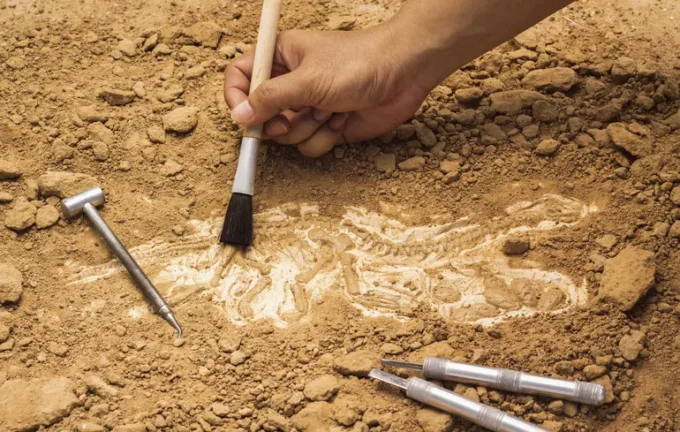Discovery That Rewrites British History: Mysterious Swords and Ancient Settlements in Gloucestershire

In 2023, an ordinary walk with a metal detector turned into an extraordinary archaeological discovery that offers new insights into Britain’s ancient past. Glenn Manning, an experienced amateur enthusiast, made a significant breakthrough during his second-ever expedition, uncovering two ancient Roman cavalry swords in a field in Gloucestershire. This find marked the beginning of a series of excavations revealing the existence of an Iron Age settlement adjacent to the ruins of a Roman villa dating from the 2nd–3rd centuries AD, adding new layers to the region’s historical tapestry. The discovery of the swords became a sensational breakthrough: it turns out they were hidden in the yard or garden of a Roman estate, possibly to prevent their capture by Saxons. According to project leader Peter Basby, the swords were found just half an inch away from destruction — nearly erased from history due to agricultural machinery. One of the swords showed traces of decorative welding, indicating high status, while the other remained smooth, hinting at a different social class. The damage on the swords allows archaeologists to infer their usage and preservation state. Historical data suggests that such long swords, known as “spathae,” were actively used by Roman equestrians from the early 2nd century AD. Besides the swords, excavations revealed remains of a Roman villa, including ceramic roofing that could have been part of underfloor heating systems, painted plaster fragments, and Iron Age settlement remains dated between 800 and 100 BC. Notably, archaeologists uncovered a burial of a person with an iron bracelet on their shoulder and a nearby horse skull, adding valuable context to the findings. Overall, these discoveries provide deeper understanding of settlement development from the early Iron Age through the Roman period. Senior archaeologist Ian Barnes from Historic England emphasized that these findings significantly enrich our knowledge of Gloucestershire’s historical landscape. The swords and other artifacts are currently prepared for display at the Corinium Museum in Cirencester, opening on August 2. The final report will determine whether to include this site in the UK’s register of historic monuments, shedding light on the connection between the Roman villa and Iron Age settlement, as well as the reasons behind the concealed artifacts. The discoverer, metal detectorist Glenn Manning, shared that he had a feeling of ‘finding something special’ the night before, and his intuition proved correct. This unexpected stroke of luck has opened a new chapter in British history. Meanwhile, archaeologists in North Macedonia have uncovered the northernmost Ionic-era Hellenistic architecture, including well-preserved capitals, painted walls, and unique Greek graffiti, adding another piece to the puzzle of ancient heritage.

